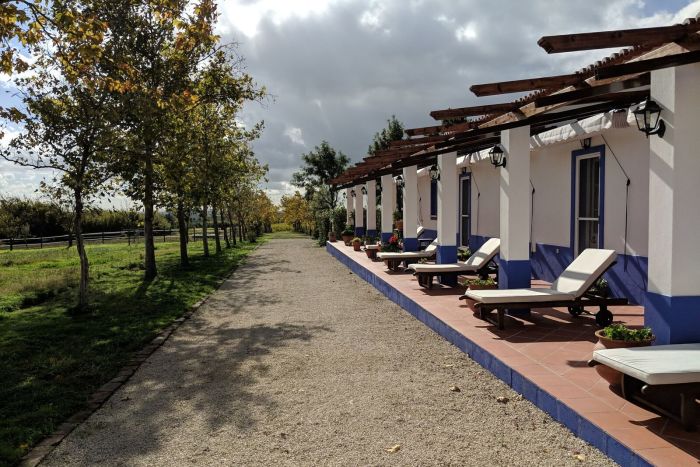Learn / Finding Help for Treatment-Resistant Depression
Finding Help for Treatment-Resistant Depression


August 1st, 2021| Clinically Reviewed by
In This Article
Treatment-resistant depression (TRD) has the same symptoms as depression, but with a more complex recovery process. Because of its effect on energy levels, depression can interfere with your capacity to seek help. This makes TRD especially daunting for many people. It takes a great deal of determination to try new treatments, with the knowledge that just finding the right modality may take some time. As difficult as this is, it’s important to stay focused on the goal of getting well.
Whatever treatment you’re currently trying, you can always continue to learn about this condition. Knowledge is power. The more you know about treatment-resistant depression, the better equipped you’ll be to manage your symptoms and get the depression help you need.
Lifestyle Changes and Behavioral Health Treatments for TRD
Treatment-resistant depression1 is defined as depression with symptoms that are not alleviated after trying two or more treatment options (medications) for at least six weeks each. Despite the myriad medical and behavioral options for treating depression, many people still struggle to find an effective treatment. One-third of people with major depression have TRD.2
If you think you may have treatment-resistant depression, you’re likely already familiar with the symptoms of major depression.3 While these criteria are well understood, research is beginning to explore some of their underlying causes.
Most people understand depression to be related to chemical factors in the brain. There are a number of environmental factors that may contribute to depression4—and it’s not just physical health. Depression has recently been associated with more frequent use of screens (cell phones, computers, etc.), and a lack of access to green space. High levels of air and noise pollution may also exacerbate symptoms. On the other hand, activities that guard against depression include confiding in other people, being part of a sports club or gym, and strangely enough, eating cereal.
These protective factors paint a clear picture: eating cereal with friends at the gym might be a valid treatment for treatment-resistant depression. In all seriousness, though, most of the activities that diminish the chances of depression include social support. That support doesn’t have to come from friends; it can also come from a one-on-one therapist, a psychiatrist, or a support group. The simple act of reaching out for help can have an immensely positive impact on TRD.

Alternative Therapies for Treatment-Resistant Depression
Holistic and alternative modalities are an increasingly popular way to treat mental health conditions. People with treatment-resistant depression might be particularly interested in these types of therapy. If traditional interventions—like SSRIs, talk therapy, and exercise—haven’t worked, you may be ready to try a radically different strategy.
Many of these depression treatments , like psychedelic-assisted therapies,5 are just starting to gain traction. However, they are not new. This class of medications was studied extensively from 1943-1970. The political shift of the 1970’s pushed researchers away from the subject, but now, public perception of psychedelics is starting to change. More effective treatments for TRD are very likely on the horizon.
In this new era, the stigma once associated with alternative therapy is dissipating. It’s an exciting time for anyone who wants to find new ways of treating mental health. That’s true for both clinicians and people dealing with their own diagnoses. Living with treatment-resistant depression might not be straightforward, but the number of safe and readily available treatments is steadily growing.
Ketamine Therapy for Depression
Ketamine is a psychedelic dissociative that can be helpful in treating depression,6 including TRD, and PTSD. It is administered in a supervised setting, rather than being prescribed for daily use. Ketamine IV treatments may be conducted individually or with small groups, and are always closely monitored by a medical team.
Ketamine therapy is intended to give you space to step back from your emotional experience, and to process your feelings from a more objective point of view. This perspective can be especially helpful in treating depression; simply taking space from your feelings can result in the immediate relief of some symptoms. Clients enter a trance state, during which they gain greater insight into their lives, often returning to full consciousness with renewed energy and a clear sense of how to move forward. The pharmaceutical aspect of ketamine therapy is often, but not always, combined with talk therapy either before or after the treatment itself. This invites clients to process the experience and set intentions for the future.
Ibogaine Treatment for Depression and Addiction
Ibogaine is a psychedelic that can be used to treat depression and addiction. According to MAPS, it is “a psychoactive alkaloid naturally occurring in the West African shrub iboga. While ibogaine is a mild stimulant in small doses, in larger doses it induces a profound psychedelic state. Historically, it has been used in healing ceremonies and initiations by members of the Bwiti religion in various parts of West Africa.” Modern-day clinicians are finding that clients with treatment-resistant depression also benefit from ibogaine therapy.7
Like ketamine, ibogaine is administered in a protected, controlled environment. Although more research is needed into this form of therapy, ibogaine shows promising results in observational studies.8 Thanks to these positive outcomes, this treatment is becoming more readily available in a number of settings, including rehab facilities.
For many clients, ibogaine therapy is a transcendent, even spiritual experience. By revisiting past experiences, they are able to reconnect with their higher selves. Álvaro de Ferranti, Founder of Tabula Rasa, explains that this treatment “heals the pain by helping the user deal with deep-seated traumas and emotional baggage. It helps them open themselves up to new possibilities, to let self-love back in, and to simply allow them to get back to self again.”

Explore Depression Treatment Centers
Combined Approaches to TRD Treatment
Pharmaceutical methods are just one way of treating resistant depression.9 Evidence supports the theory that a combined approach, including multiple modalities at once, is the most effective way to affect change. In order to achieve this, you may need to assemble a team of healthcare providers with different specialties.
Treatment-resistant depression is a mental health condition, but it can also impact your physical health, your relationships, and every other area of your life. Because of this, you can likely benefit from working with not just a psychiatrist and talk therapist, but also a personal trainer, massage therapist, or even an acupuncturist. If you want to kickstart the healing process with intensive treatment, you may want to consider inpatient treatment, or an IOP. As you try various modalities, remember that there’s no one right or simple answer. You might need to experiment with a few different combinations before finding what works best for you.
How to Know When to Try a New Treatment
When you begin treating any condition, whether it’s mental or physical, it’s important to track your symptoms carefully. For TRD, you can do this by journaling, using a mood tracker, or even making a spreadsheet to track how different behaviors affect your emotional state. Working with healthcare providers can also be extremely helpful in this process. A therapist will be able to refer to their notes, and provide objective insight into your progress over time.
If you decide to try pharmaceutical treatment for treatment-resistant depression,10 it’s absolutely essential that you follow your prescriber’s directions. Brain chemistry changes slowly, and it can be hard to know whether a new medication is working unless you give it adequate time to take effect. Research suggests that it takes at least 4 to 6 weeks on a new treatment before you start seeing results. That being said, everyone’s brain chemistry is different, and your experience may be different from this. Make sure to work closely with your provider to manage any side effects, and get their advice before stopping a medication.
When you’re working with an expert in any field, whether they’re a therapist or an interior decorator, it can take time to find the right person for you. If you’ve been seeing a therapist for some time without noticeable results, don’t be afraid to look for a new provider. That being said, don’t jump ship just because it doesn’t feel good. The work of therapy may not be easy or fun; the question is whether it’s helping you make positive, sustainable changes in the rest of your life.
Because depression often has environmental causes, it can also be helpful to see how your mood changes based on external factors. For example, do you feel worse in rainy weather, or when you don’t have time to see friends? In some cases, you can make behavioral changes to manage these symptoms, such as investing in a sun lamp or rearranging your schedule. However, you’re unlikely to stop encountering common triggers. If these external circumstances have less of an effect on your mood as you continue treatment, it’s a sign that you’re on the right track.
As Rowland Tweedie, Health and Fitness Manager of Paracelsus Recovery, sees it, “People are 360 degrees. All of us, we’ve got many aspects of our life: our health, our mental state, our physical state.” While the road to recovery may not be simple or straightforward, this process will undoubtedly teach you a great deal about yourself.
Healing From TRD is an Opportunity
As painful as treatment-resistant depression can be, it can also be an opportunity. If you’re able to cultivate an attitude of curiosity about yourself and your healing journey, the process may be far less arduous.
When you try several different types of therapy, you’ll learn about yourself from every angle. People are complex, powerful, and multifaceted. That includes you. As you get to know yourself better, you may find that recovery is a creative act. For people with TRD, it means more than finding the right pill. Instead, this is the process of building a better and more fulfilling life.
To learn more about different TRD therapies, you can connect with an inpatient rehab facility that treats depression.
Frequently Asked Questions About Treatment-Resistant Depression
How do I know when to try a new treatment for treatment-resistant depression (TRD)?
To determine when to try a new treatment for treatment-resistant depression (TRD), you can use tools like journaling, mood trackers, or spreadsheets to track how you feel day to day. Working closely with your therapist and other treatment providers can provide valuable insights into your progress and guide decisions about trying new approaches.
What alternative therapies are available for treatment-resistant depression?
Alternative therapies, including psychedelic-assisted therapies, are emerging as potential treatments for treatment-resistant depression (TRD). These therapies offer new possibilities for people whose depression hasn’t responded to traditional interventions.
How can combined approaches be effective in treating treatment-resistant depression (TRD)?
Combining multiple therapies and working with a team of healthcare providers with different specialties can be the most effective approach in treating treatment-resistant depression. This comprehensive approach addresses the multifaceted impact of TRD and can lead to better outcomes.
-
Fabbri, C., Hagenaars, S. P., John, C., Williams, A. T., Shrine, N., Moles, L., Hanscombe, K. B., Serretti, A., Shepherd, D. J., Free, R. C., Wain, L. V., Tobin, M. D., & Lewis, C. M. (2021). Genetic and clinical characteristics of treatment-resistant depression using primary care records in two UK cohorts. Molecular Psychiatry, 1–11. https://doi.org/10.1038/s41380-021-01062-9
-
MacDonald, A. (2010, December 9). New insights into treatment-resistant depression. Harvard Health. https://www.health.harvard.edu/blog/new-insights-into-treatment-resistant-depression-20101209891
-
What is depression? (n.d.). Retrieved July 26, 2021, from https://www.psychiatry.org/patients-families/depression/what-is-depression
-
Factors that affect depression risk. (2020, August 28). National Institutes of Health (NIH). https://www.nih.gov/news-events/nih-research-matters/factors-affect-depression-risk
-
Psychedelic therapy could “reset” depressed brain. (2021, March 15). BBC News. https://www.bbc.com/news/health-56373202
-
MD, R. C. M. (2019, May 22). Ketamine for major depression: New tool, new questions. Harvard Health. https://www.health.harvard.edu/blog/ketamine-for-major-depression-new-tool-new-questions-2019052216673
-
Ibogaine therapy for drug addiction. (n.d.). MAPS. Retrieved July 26, 2021, from https://maps.org/research/ibogaine-therapy
-
Two new studies show ibogaine’s promise as treatment for opioid addiction. (n.d.). MAPS. Retrieved July 26, 2021, from https://maps.org/news/media/6693-press-release-two-new-studies-show-ibogaine%27s-promise-as-treatment-for-opioid-addiction
-
Cowen, Philip J., and Ian M. Anderson. “New Approaches to Treating Resistant Depression.” BJPsych Advances, vol. 21, no. 5, Sept. 2015, pp. 315–23. Cambridge University Press, https://doi.org/10.1192/apt.bp.114.013847.
-
Antidepressant Medications. (n.d.). Center for Integrated Healthcare. https://www.mentalhealth.va.gov/coe/cih-visn2/Documents/Clinical/Depression_Specific_Tools/Antidepressant_Medications.pdf
Return to Resource Library
Our Promise
How Is RehabPath Different?
We believe everyone deserves access to accurate, unbiased information about mental health and addiction. That’s why we have a comprehensive set of treatment providers and don't charge for inclusion. Any center that meets our criteria can list for free. We do not and have never accepted fees for referring someone to a particular center. Providers who advertise with us must be verified by our Research Team and we clearly mark their status as advertisers.


















